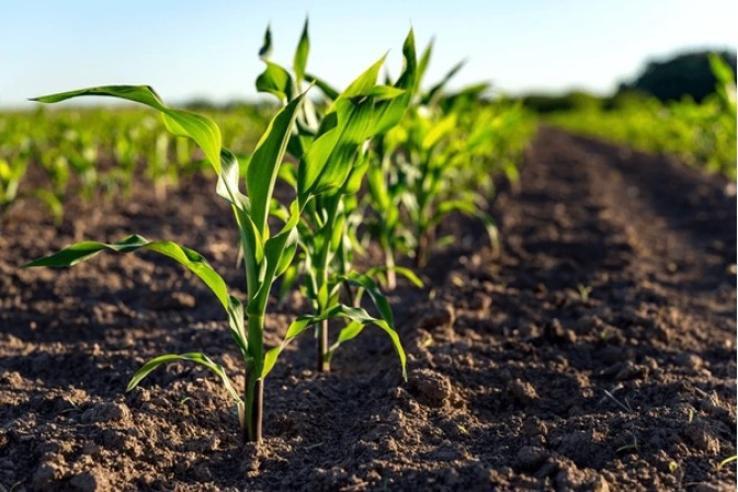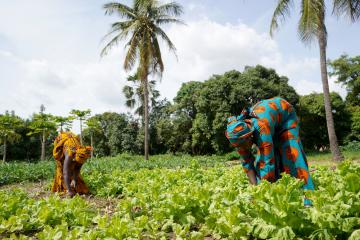UJALA African Scholars Program

The UJALA African Scholars Program supports African scholars to lead rigorous, policy-relevant impact evaluations in agriculture across the globe. Despite growing interest in evidence-based policymaking, many Scholars face barriers to accessing the resources and support needed to lead high-quality randomized evaluations. To address this gap, UJALA will offer a tailored package of training, mentorship, funding, and hands-on experience to researchers who hold a PhD in Economics, Agricultural Economics, or a related empirical field and are affiliated with an academic institution. The program is open to both resident and non-resident African Scholars whose work aligns with UJALA’s research agenda on agricultural development.
Announcement: UJALA Program Launch – Mid-September 2025
UJALA will officially launch the UJALA African Scholars Program during an in-person event at the Mohammed VI Polytechnic University (UM6P) Rabat campus on 17 September 2025. The event will present the program’s goals, structure, and opportunities for African Scholars interested in conducting high-quality impact evaluations.
The agenda will include:
- Presentations of recent agricultural randomized evaluations by leading researchers
- A detailed overview of the program structure, eligibility, mentorship model, and placement opportunities
- Networking with faculty, students, and partner institutions
More details, including the full agenda, registration, and application information, will be shared soon.
Application
In order to join the UJALA Scholars Program, eligible scholars will need to submit an application. Applications will open by mid-September. Stay tuned for important dates, relevant links, and full details on how to apply.
For more information about the application process, selection, or program components, please refer to our FAQ document.
We also encourage you to sign up through our African Scholars Registry, which we use to share information about upcoming funding opportunities and related announcements.
Eligibility Criteria
The program is open to resident and non-resident African Scholars conducting research relevant to Africa. Specific requirements include:
- Academic background: PhD in Economics, Agricultural Economics, or a related empirical discipline.
- Quantitative skills: Advanced level of econometrics, statistics, and data analysis is required, along with proficiency in either Stata or R.
- Language skills: Advanced proficiency in English (i.e., fluent or native-level) is required to engage with training, mentorship, and research activities.
- Professional affiliation:
- Resident Scholars must be based at an academic institution in Africa.
- Non-resident Scholars must have completed high school in Africa and be currently based at an academic institution abroad.
- Research focus: Interest in development economics, impact evaluation, and randomized controlled trials, with a focus on agriculture.
- Program commitment: Willingness and availability to complete all program components, including training and any recommended coursework, mentorship activities, and research engagements.
- Prior engagement (preferred): Candidates affiliated with UM6P or who have collaborated with OCP-affiliated entities or their partners will receive priority consideration.
Applicants must not be current J-PAL affiliates or invited researchers. Prior collaboration with J-PAL researchers in those roles is not disqualifying, as long as the applicant meets the eligibility criteria.
Program Components
Training and education
During the first phase of the program, some Scholars might be recommended to complete one or two courses from the Data, Economics, and Design of Policy MicroMasters (DEDP), particularly if they are new to impact evaluation or need a refresher on key concepts. Course fees will be covered by UJALA.
All Scholars will have the opportunity to request funding to cover course fees, either for taking additional courses or for completing the full MicroMasters if they wish. In such cases, they will be asked to briefly explain how they plan to manage the time commitment and how the additional coursework would support their pilot proposal and research development.
All Scholars are required to participate in a practical workshop, designed to guide them through the full process of developing a pilot proposal. Scholars will work through a randomized evaluation case, draft a full proposal and budget sheet, and receive simulated review comments and a mock funding decision. The final output will be reviewed by UJALA staff and a J-PAL affiliated or invited researcher.
Mentorship
Mentorship begins after the Scholar successfully completes the training components of the UJALA African Scholars program, submits a Letter of Interest (LOI), and is invited to submit a full proposal following a positive review of their LOI.
Each funded Scholar is paired with a J-PAL affiliated or invited researcher who provides tailored, hands-on guidance throughout the grant period.
Mentors provide regular check-ins and support on research design, fieldwork, and how study results could be used to inform or scale up similar programs in other settings.
Impact evaluation tracks
Scholars will either:
- Design and propose their own pilot study on a topic of their choice, aligned with UJALA’s research agenda. (Note that all pilots must be piloting research activities on the pathway to a full-scale randomized evaluation).
- Team up with another Scholar within the UJALA African Scholars Program and jointly develop a single pilot proposal.
- Join an ongoing randomized evaluation led by an experienced principal investigator (PI) to gain practical, hands-on experience through a research placement. This option is particularly suited for early-career Scholars or those new to randomized evaluations. However, placement depends on project timelines and team needs.
In all pathways, Scholars will receive continuous support and guidance from the UJALA team.
Research funding
Scholars can apply for up to $75,000 (pre-tax) in pilot grant funding to design and implement early-stage RCTs. Funding covers field costs, research design, and researcher time (up to a certain percentage; see the funding section in the FAQ for details). However, to be eligible for this funding, Scholars must successfully complete the training components of the program. Then, they must also submit a promising Letter of Interest (LOI), which summarizes their proposed research. After the LOI is accepted, Scholars will be invited to submit a proposal as part of the request for proposals (RFP) stage, which involves a competitive, multi-step review process before a funding decision is made.
J-PAL African Scholars who have successfully completed a pilot under another J-PAL initiative or regional office may apply directly for UJALA pilot funding through our RFP process, without going through the UJALA African Scholars Program training and workshop. See our webpage or the FAQ document for more information.
Professional development
Scholars will develop practical skills in designing and running randomized evaluations, including drafting proposals and corresponding budgets, responding to peer reviews, and communicating research findings.
Networking and collaboration
UJALA Scholars Program participants will work closely with their cohort peers and mentors while developing their research projects and building connections through shared learning and collaboration.
UJALA Scholars who are awarded research funding will also gain access to a wider network of J-PAL Scholars, J-PAL affiliated and invited researchers, as well as UJALA’s partner institutions worldwide.
Visibility and engagement
Scholars may have opportunities to share their work at UJALA and partner events. Their projects may also be featured in newsletters, social media posts, or other platforms to highlight key milestones and achievements.
Completing a successful pilot opens the door for future funding opportunities through UJALA or other J-PAL Scholars Programs. Check the FAQ document to learn more about these opportunities.
Contact Us
Looking for more information or have any questions? Check our FAQ document for details on eligibility, application process, funding, and program structure.
Still didn’t find what you’re looking for? Reach out to the UJALA team at [email protected]. The team will be happy to assist you and get back to you as soon as possible. Please note that time differences may apply as UJALA working hours follow the Rabat time zone.

